If you want to help people in the midst of natural disasters or other crises, you may want to earn an online emergency management degree.

This type of degree can prepare you to provide leadership and administrative support to police and fire departments or to work for government agencies, such as the Federal Emergency Management Agency or the Department of Homeland Security.
Editorial Listing ShortCode:
There will always be a demand for people knowledgeable about how to respond to emergencies.
Online Emergency and Disaster Management Degree Programs

Emergency and disaster management degree programs should help prepare you to understand all aspects of emergency response. These types of degrees are largely intended for people who want to work in the public sector in administrative or managerial positions rather than as first responders.
At a government agency that responds to emergencies, there is a lot of administrative work that goes on behind the scenes. To provide leadership in this field, it’s necessary to understand the organizational structure that keeps these government agencies running smoothly.
It’s also necessary to understand the physical effects of different types of emergencies, such as personal injuries and property damage, as well as how emergencies affect people socially and emotionally.
Editorial Listing ShortCode:
Your coursework will likely cover all of these diverse topics, including psychology and sociology. Emergency management degree programs often allow you to choose a focus or specialty, such as fire response or law enforcement.
Courses in core academics, such as English composition and college algebra, are also required to obtain a bachelors degree. Obtaining a bachelors degree in this field usually takes 4 years.
Emergency Management Careers & Salaries
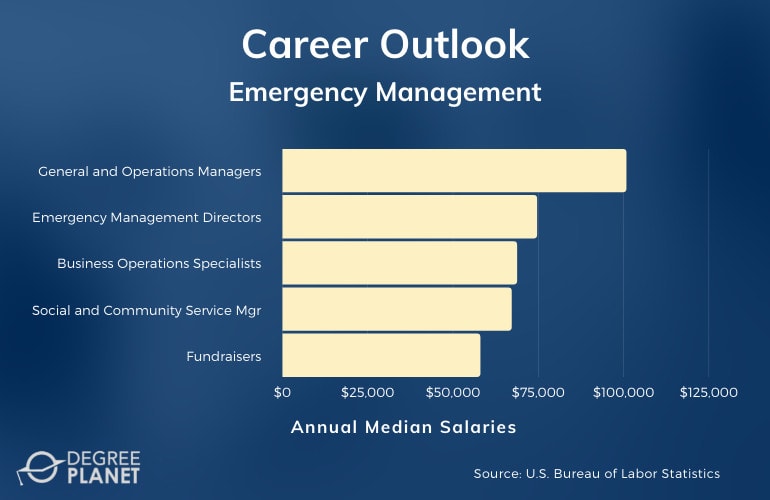
Most emergency management professionals are employed by government agencies at the state or local level. Some private organizations, such as hospitals, may also employ emergency management specialists. If you intend to pursue a career in an emergency management field, you may need to be prepared to work in a variety of contexts.
According to the Bureau of Labor Statistics, you may pursue these various careers with a degree in emergency management.
| Careers | Annual Median Salaries |
| General and Operations Managers | $103,650 |
| Business Operations Specialists | $77,420 |
| Emergency Management Directors | $76,250 |
| Social and Community Service Managers | $69,600 |
| Fundraisers | $59,610 |
In practice, different organizations and public agencies in this field might use a lot of different official job titles to refer to employees who perform similar functions.
Some of these agencies respond to specific types of emergencies, such as natural disasters or terrorist attacks. Other public agencies, such as the Federal Emergency Management Agency, are more general.
Emergency Management Curriculum & Courses

Here are some examples of courses that might be included in an emergency management degree program.
- Introduction to Emergency Management: This course serves as an introduction to emergency management programs as a whole.
- Disaster Mitigation and Preparedness: This course teaches how to prepare for a disaster and how to prevent disasters from occurring in the first place when possible.
- Disaster Response and Recovery: This course teaches how to respond to a disaster once it has already occurred.
- Terrorism in Emergency Management: This course provides more specialized information on how to respond to terrorist attacks.
- Interagency Disaster Management: This course teaches how different public agencies can coordinate their operations to respond to emergencies.
- Socio-Psychological Nature of Emergency Management: This course will help you understand the social and psychological impact that an emergency can have on real people.
- Community Risk Reduction for the Fire and Emergency Services: This course teaches how to reduce the risk of fires and other emergencies.
- Personnel Management for the Fire and Emergency Services: This course teaches management principles as they specifically apply to fire departments and other emergency services.
- Terrorism Incident Management and Emergency Procedures: This course teaches about procedures for responding to terrorist attacks.
Coursework for an emergency management degree covers a variety of topics related to different types of emergencies and how to respond.
Are Online College Degrees a Legitimate Option?

Yes, online degrees in emergency management are a legitimate option, as long as the degree program you are considering is being offered by an accredited institution.
Many traditional colleges and universities now offer online degrees that teach the exact same material that is taught on campus. Coursework is often identical between online and traditional degree programs offered by the same college or university.
The requirements to earn a crisis management degree online are usually the same as those to earn a traditional degree. Completing coursework in ad online program is convenient for many people, and you may learn all the same knowledge and skills as you could learn in a traditional classroom.
Editorial Listing ShortCode:
Even if a college or university offers an entirely online program and has no physical campus, potential employers will still respect your degree as long as it comes from an accredited institution. An online degree from an accredited institution is equally as legitimate as a degree earned by learning on campus.
When considering an online degree program, the most important thing to check is that the college or university in question is accredited.
Admissions Requirements

If you are hoping to secure admission to a degree program in an emergency management field, here are some common requirements:
- GPA requirements. Minimum GPA requirements vary from one institution to another, but most undergraduate programs require a high school GPA of at least 2.0.
- Letters of recommendation. You may be required to provide letters of recommendation from a teacher or other mentor.
- Personal statement. You may be required to provide a personal statement or writing samples.
- Test scores. You may need to submit SAT or ACT scores, although this is not always required.
Of course, it is necessary to check with the specific school you wish to attend to know the exact requirements of their emergency management programs.
Accreditation

Regional accreditation is the most widely accepted form of accreditation in the United States.
If a college or university has regional accreditation, that means that any course credits you earn at that college or university will likely be accepted by another college or university if you decide to transfer. If you start your education at an unaccredited school, there’s a chance your credits may not transfer elsewhere.
In order to receive regional accreditation, a college or university must be evaluated by an external agency to make sure that it meets certain standards of quality. Once regionally accredited, a school must undergo regular evaluations to keep its accreditation. For more information, you can visit the Council for Higher Education Accreditation (CHEA).
Financial Aid and Scholarships

If you want to obtain a degree but can’t afford it, you may be able to obtain some sort of financial assistance.
There are many different types of financial aid and scholarships available to students who qualify. Financial aid and scholarships may be available through government programs, through your employer, or through the institution to which you’re applying.
To apply for federal financial aid, you can fill out the Free Application for Federal Student Aid (FAFSA).
What Can I Do with a Degree in Emergency Management?

People who work in an emergency management field work for a variety of government agencies and organizations. Some workers specialize in handling specific types of emergencies, such as fires or severe weather.
These positions can have a variety of job titles, but the Bureau of Labor Statistics consolidates most of these workers under the job title emergency management director. Emergency management professionals earn an average annual salary of $76,250.
How Long Does It Take to Get a Degree in Emergency Management Online?
If you are enrolled in school full-time, completing any undergraduate degree program, including an emergency management bachelor’s degree, usually takes 4 years, or a total of 8 semesters.
Editorial Listing ShortCode:
If you take classes during the summer or already have college credit, it may take you less time to complete your degree. Although your degree may take longer to complete if you’re taking classes part-time, you may prefer this option if you are also working or attending to family responsibilities.
If you decide to continue on to graduate school, you may be able to earn your masters in emergency management online in an additional 1 to 2 years, the same amount of time as in a traditional masters program.
What Degree Do I Need for Emergency Management?

Some people who work in emergency response, such as paramedics and police officers, don’t usually need college degrees.
If you want to work in management and administration, though, a degree can provide an advantage when applying for jobs. A degree may also help ensure that you are well-prepared to actually do the job.
If you have not yet obtained a bachelors degree, you may want to consider earning a emergency management bachelor’s degree. If you already have a bachelors, then you may want to consider exploring graduate degree in emergency management programs.
Is a Degree in Emergency Management Worth It?

Yes, a degree in emergency management is worth it for many professionals. Jobs in the management field are projected to grow at a rate of 5% in the next 10 years (Bureau of Labor Statistics).
Common emergency management careers in this field include emergency management directors, police supervisors, environmental health and safety managers, disaster recovery managers, and hospital emergency preparedness administrators.
A career in emergency management may be very rewarding. Emergency management workers often earn above average salaries, but there’s more in this field than money. Emergency management workers help their communities in times of greatest need.
Universities Offering Online Bachelor’s in Emergency Management Degree Programs
Methodology: The following school list is in alphabetical order. To be included, a college or university must be regionally accredited and offer degree programs online or in a hybrid format.

In its emergency services administration bachelors program, Adelphi University offers life experience credits to students who’ve received various types of emergency-related training. This could include police, firemen, paramedics, or people in the military or the DHS. This decreases the number of classes they have to take to earn their degrees.
Adelphi is accredited by the Middle States Commission on Higher Education.

Students in the Bachelor of Arts in Emergency and Disaster Management program at American Public University will learn about hazard identification, prevention and management techniques, counter-terrorism, and risk assessment.
They’ll also study the various phases of emergency preparation and disaster management. Courses include psychology of disaster, emergency planning, and consequence management.
APUS is accredited by the Higher Learning Commission.

Anderson University has a Bachelor of Arts in Homeland Security and Emergency Services with a concentration in Emergency Services Management.
It’s a 120 credit program that can be undertaken entirely online. Students will learn about a wide variety of topics, including safety management, government budgeting and finance, and crisis communications in crises.
Anderson University is accredited by the Southern Association of Colleges and Schools Commission on Colleges.

The Bachelor of Science in Public Service and Public Policy program at Arizona State University includes a concentration in emergency management and homeland security that helps prepare students to respond to and mitigate disasters.
Graduates often pursue careers as emergency managers, logistics managers, security managers, CEOs, or regulatory affairs managers.
Arizona State University is accredited by The Higher Learning Commission.
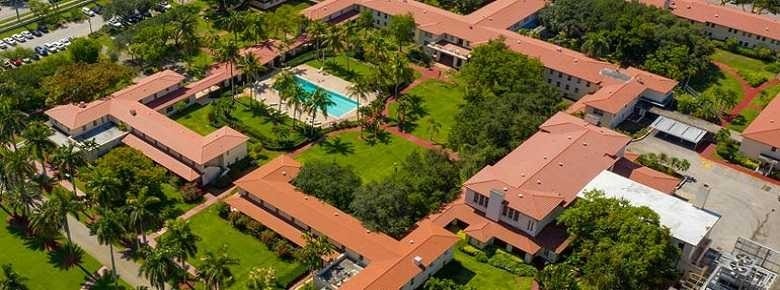
Barry University’s online Bachelor of Science in Emergency Management program takes its coursework from a myriad of different fields, including health sciences, sociology, criminal justice, public administration, management, psychology, and the environmental sciences.
Students should receive the foundations they need to become leaders in disaster preparation, mitigation, response, and recovery.
Barry University is accredited by the Southern Association of Colleges and Schools Commission on Colleges.

The 127 credit Bachelor of Science in Emergency Management program at Bellevue University covers topics such as risk assessment, legal issues, crisis readiness, command structures, terrorism, and other issues related to natural and man-made disasters and responding to them.
It’s a good program for first responders and security and law enforcement professionals.
Bellevue University is accredited by the Higher Learning Commission.

Students in Bethel University’s emergency services management bachelors program will take 128 credits in courses pertinent to emergency public service fields. The program curriculum includes courses like terrorism in the modern world, science and hazards, and weapons of mass destruction.
Bethel University is accredited by the Southern Association of Colleges and Schools Commission on Colleges.

Colorado State University’s fire and emergency services bachelors program allows students to study on their own time in ways that work with their schedules. The program also teaches students critical leadership skills that’ll serve them well in many different industries. Students can also select one of nine minors to study.
Colorado State is accredited by The Higher Learning Commission.

The Bachelor of Science in Disaster and Emergency Management program at Crown College is an accredited, Christ-centered program that’s 100% online. There are several minors students can choose to pursue. Class sizes are small, and each student is paired with an academic advisor to help ensure his or her success.
Crown College is accredited by the Higher Learning Commission of the North Central Association.

The university is named as one of the best in the Midwest by U.S. News & World Report.
Their Bachelor of Science in Emergency Management curriculum prepares students for careers in emergency management by providing a comprehensive curriculum that includes hands-on, real-world experience in the form of a 60 hour internship.
Drury University is accredited by the Higher Learning Commission.
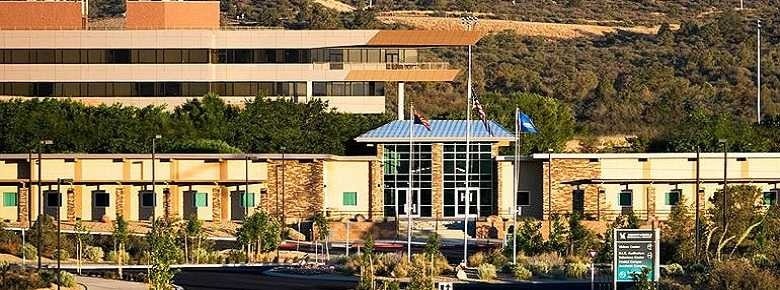
Embry-Riddle Aeronautical University’s Bachelor of Science in Emergency Service program is one of the few programs of its kind in the nation to include the Certificate of Recognition from Fire Emergency Services Higher Education. This is because the curriculum meets all the standards set by the FESHE for fire departments.
Embry-Riddle Aeronautical University is accredited by the Southern Association of Colleges and Schools Commission on Colleges.

Students enrolled in the Bachelor of Science in Disaster and Crisis Management program at Everglades University will gain firm foundations in crisis and disaster management and business and management applications while also taking all required general education courses.
There are 18 required major-specific courses, including relationship management and effective team management.
Everglades University is accredited by the Commission on Colleges of the Southern Association of Colleges and Schools.

Students in Excelsior College’s Bachelor of Science in Homeland Security and Emergency Management program can transfer up to 113 of the required 120 credits from another program. On average, though, students only transfer about 73. The school also awards credit to students who have military training relevant to the degree.
Excelsior College is accredited by the Middle States Commission on Higher Education.
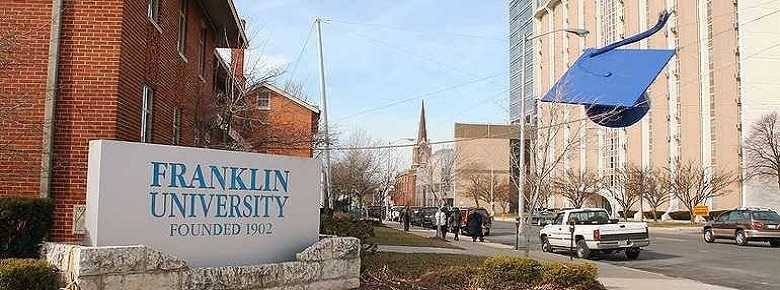
The Bachelor of Science in Emergency Management and Homeland Security program at Franklin University exposes students to emergency-related topics, such as safety and security planning, threat assessment, risk management, homeland security, and emergency management.
The school accepts transfer credits, and most students complete the program in less than 4 years.
Franklin is accredited by the Higher Learning Commission.

Grand Canyon University’s Bachelor of Science in Homeland Security and Emergency Management program helps students improve both their communication and leadership skills.
There are four main areas of focus in the curriculum: frameworks and practice, research and critical thinking, ethics and relationship building and community engagement, and organizational disaster management and leadership.
Grand Canyon University is accredited by the Higher Learning Commission.

Immaculata University’s FEMA recognized emergency planning and management bachelors program is the only program of its kind in the entire region.
The school allows students to test on their prior learning and work experiences to earn credit. Courses include cultural modes of expression, human resources management, and Christian faith in action.
Immaculata University is accredited by the Middle States Commission on Higher Education.

Jacksonville State University has a lot of options in terms of emergency management. It offers a Bachelor of Science program in the field with concentrations in either homeland security or public safety telecommunications. There’s also a graduate certificate program and both a 100% online MS and a 100% online emergency management doctorate degree program available.
Jacksonville State University is accredited by the Southern Association of Colleges and Schools Commission on Colleges.

Students enrolled in Kansas Wesleyan University’s Bachelor of Arts in Emergency Management program can choose to minor in either criminal justice or unmanned aircraft systems (aviator or non-aviator). The school has both local and national partnerships with various organizations that allow students to gain lots of hands-on experience as well.
Kansas Wesleyan University is accredited by The Higher Learning Commission.

Mercer University’s Bachelor of Science in Homeland Security and Emergency Management program teaches students how to communicate effectively in high-risk situations and develop critical-thinking skills that can help them act quickly and decisively regarding public safety.
Students will also gain strong foundational knowledge about public safety and effective leadership skills.
Mercer University is accredited by the Southern Association of Colleges and Schools Commission on Colleges.

At National University, students in the homeland security and emergency management bachelors program will learn about best practices for dealing with pending emergencies and how to behave during and after crisis situations.
They’ll also gain firm foundations in the cultures, politics, practices, and security issues surrounding domestic and global terrorism.
National University is accredited by the Western Association of Schools and Colleges.

The Bachelor of Arts in Emergency and Disaster Management program from Ohio Christian University can be taken on-campus or 100% online via 5 week courses that allow students to work at their own paces. The curriculum includes courses such as international development, hazardous materials response, grant writing, and recovery and mitigation.
Ohio Christian University is accredited by the Higher Learning Commission of the North Central Association of Colleges and Schools.

The curriculum in Post University’s emergency management and homeland security bachelors program focuses primarily on the four phases of emergency management: preparedness, mitigation, response, and recovery.
Students will also study the history of terrorism, specifically within the US, and research some of America’s currently pending and most viable terrorist threats.
Post University is accredited by the New England Commission of Higher Education.

State University of New York – Canton’s emergency management bachelors program provides students with many hands-on, experiential learning experiences.
Most classes run for only 7 weeks, and there are internships available for students at the local, state, and federal levels. Students will participate in virtual disaster simulations and study hazard modeling.
SUNY Canton is accredited by the Middle States Commission on Higher Education.

The homeland security and emergency management bachelors program at Thomas Edison State University is a 120 credit program that nicely complements the school’s masters programs in homeland security and management.
Courses related to terrorism take up a large portion of the curriculum. Electives include international relations, gangs, and deliberative democracy.
Thomas Edison State University is accredited by the Middle States Commission on Higher Education.

Students enrolled in the homeland security and emergency management bachelors program at University of Alaska – Fairbanks will benefit from small classes and expert faculty who’ve worked in the field. Many graduates go on to work in law enforcement, public health, cybersecurity, and disaster response as well as for FEMA or the Red Cross.
UAF is accredited by the Northwest Commission on Colleges and Universities.

Students in the University of Florida’s Bachelor of Science in Fire and Emergency Services program can choose from one of three concentration areas: emergency management, fire, or emergency medical services management.
Although the degree prepares students academically for careers in fire, EMS, or emergency management agencies, it doesn’t provide certification.
The University of Florida is accredited by the Southern Association of Colleges and Schools.

University of Nebraska – Omaha’s emergency management bachelors program is a 120 credit program that breaks down into 15 credits of fundamental academics, 25 credits of distribution requirements, 6 credits of diversity requirements, 30 core credits, and 30 specialization-specific credits.
Students must choose 2 specializations from the 16 that are available.
UN – Omaha is accredited by the Higher Learning Commission.

University of Wisconsin – Oshkosh offers a Bachelor of Applied Studies in Fire and Emergency Response Management (FERM) program and a Master of Public Administration program with a concentration in FERM.
They’ve both received accreditation from the International Fire Service Accreditation Congress. There are also two different certificate options available.
The University of Wisconsin – Oshkosh is accredited by the Higher Learning Commission.
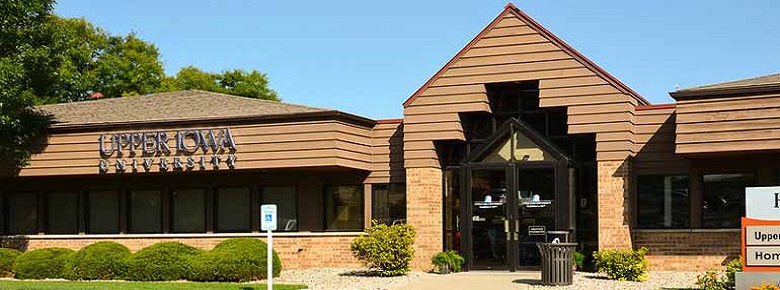
The emergency and disaster management bachelors program at Upper Iowa University lends itself nicely to the school’s Master of Public Administration degree for students looking to pursue graduate-level education.
The program’s curriculum is designed to help students understand and lessen the strain of natural, civil, or man-made crises and disasters.
Upper Iowa University is accredited by the Higher Learning Commission.

Waldorf University features a Bachelor of Arts in Emergency Management program with two available concentrations in either fire science or homeland security.
It takes most full-time students about 4 years to complete the degree. Courses include terrorism in emergency management, incident command in emergency and disaster management, and special operations.
Waldorf University is accredited by the Higher Learning Commission.
Getting Your Emergency Management Degree Online

Emergency management programs offer a career in which your hard work can provide real help to the people around you. The world will always need workers who are prepared to respond in a crisis.
Today may be the day that you start your educational journey by exploring accredited universities and the many online programs they offer. There can be many benefits to enrolling in an emergency management degree online program.
Emergency management bachelor’s degree programs could be a path to a fascinating new career, a career that could make a difference in the world around you.

